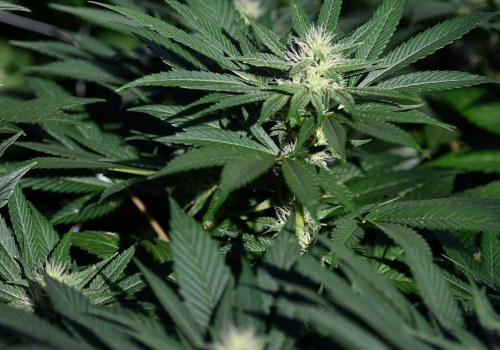Medical marijuana has been a subject of extensive research and discussion within the medical community and beyond, with a growing body of evidence supporting its potential therapeutic benefits for a wide range of conditions. This natural remedy, derived from the cannabis plant, contains compounds like THC (tetrahydrocannabinol) and CBD (cannabidiol) that interact with the body's endocannabinoid system, which plays a key role in regulating pain, mood, appetite, memory, and other physiological and cognitive processes. The therapeutic applications of medical marijuana are vast and varied, encompassing both physical and mental health conditions, demonstrating its versatility as a treatment option.
One of the primary areas where medical marijuana has shown significant promise is in pain management. Chronic pain affects millions of people worldwide, often leading to a decreased quality of life and the use of potent, sometimes addictive, pain medications. Medical marijuana has been found to be effective in alleviating chronic pain, including conditions such as neuropathic pain, arthritis, and migraine headaches, offering a less addictive alternative to traditional painkillers. Moreover, its anti-inflammatory properties contribute to its effectiveness in pain relief, making it a viable option for patients seeking alternatives to conventional treatments.
Beyond pain management, medical marijuana has been used to treat a range of neurological and mental health conditions. For instance, it has shown potential in reducing the frequency of seizures in individuals with epilepsy, including forms that are resistant to other treatments. Additionally, its calming effects have been beneficial for patients with anxiety disorders, providing relief from symptoms without the significant side effects associated with some anxiety medications.
Medical marijuana also plays a role in managing symptoms associated with cancer treatment, such as nausea and vomiting induced by chemotherapy. Patients have reported improved appetite and weight gain during cancer treatment when using medical marijuana, addressing the challenge of cachexia or wasting syndrome. Furthermore, there is ongoing research into the potential anti-cancer properties of cannabinoids, with some studies suggesting they may inhibit tumor growth in certain types of cancer, although more research is needed in this area.
For individuals living with chronic conditions like multiple sclerosis (MS), medical marijuana has been used to alleviate symptoms such as muscle spasms, pain, and stiffness. Patients have reported improved mobility and a reduction in spasticity, enhancing their quality of life. Similarly, it has been explored as a treatment option for individuals with Parkinson's disease, where it may help reduce tremors and pain and improve sleep.
It's important to note that while medical marijuana offers a range of therapeutic benefits, it is not without its challenges and controversies. The variability in strains, dosages, and consumption methods can affect its efficacy and side effects, underscoring the need for further research and standardized treatment protocols. Moreover, the legal status of medical marijuana varies widely across jurisdictions, impacting its accessibility for patients.
In the context of exploring natural and alternative therapies, the interest in substances like Sunset City mushrooms reflects a broader trend towards holistic approaches to health and wellness. Like medical marijuana, such natural remedies are being investigated for their potential benefits in treating various health conditions, indicating a growing openness to integrating traditional and alternative treatments in medical practice.
In summary, medical marijuana has emerged as a versatile and potentially effective treatment for a wide array of medical conditions, from chronic pain and neurological disorders to the side effects of cancer treatment and mental health issues. Its ability to provide relief where conventional medications may fail or cause undesirable side effects has made it a valuable addition to the therapeutic arsenal for many patients. As research continues to unfold, the full scope of medical marijuana's benefits and its place within the broader context of healthcare will become clearer, potentially leading to more widespread acceptance and use.










